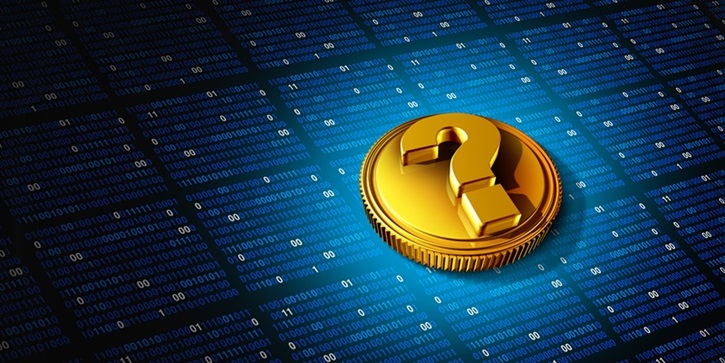You sent in so many good responses to our crypto survey that I had to enlist the help of my trusty artificial intelligence (AI) assistant.
ChatGPT sifted through thousands of answers and spat out a detailed summary within 30 seconds.
Magic. This is your daily reminder to use AI.
(I read every answer individually, too… AI helped me parse them and find the most common themes.)
Today, let’s address your main concerns about crypto…
Won’t governments just ban crypto?
People have been saying this for years.
Yet bitcoin (BTC) just celebrated its 15 birthday. It’s up 14,000% in the past decade and remains freely available for billions of people to buy and use.
Crypto will never be banned—at least not in America, for two main reasons:
Reason 1: Bitcoin ≠ crypto.
The argument goes: “Governments will outlaw cryptocurrency because it competes with their dollars, euros, pounds…”
Bitcoin competes with flimsy paper currencies, yes. But crypto is so much more than bitcoin. Digital money is only one use of blockchain, the tech behind crypto. Blockchain is a whole new way to launch and operate a business.
Many of the world’s most innovative companies are being built on the blockchain. Take Hivemapper (HONEY), for example. You can buy a dashcam, put it in your car, and get paid in crypto tokens for helping it maintain a real-time, constantly updated map.
For the record, I don’t think the US government will ban digital currencies like bitcoin, either.
Reason 2: It’s political suicide.
Governments could’ve tried to outlaw crypto at any time over the past decade, but they didn’t. (Except China, which tried and failed at least six times.)
And now for the first time ever, crypto has significant and growing political support. Dozens of politicians, regulators, and even US presidential candidates have shown support for bitcoin.
The “ban crypto” ship has sailed.
A recent Coinbase (COIN) report estimates some 50 million Americans own crypto. That includes the rapidly growing number of retirees who now own the new bitcoin ETFs in their 401(k)s.
Trying to ban crypto now would be political suicide. The odds shrink further every day.
Bitcoin is like tulips.
People often compare bitcoin to Dutch tulip bulbs, referring to the 17-century bubble in the Netherlands when tulips became worth as much as a mansion on Amsterdam’s Grand Canal.
Of course, it all came crashing down.
Dutch tulips never bounced back to new highs because scams don’t recover.
Bitcoin, on the other hand, has experienced four separate 75% selloffs.
It’s surged back to new highs each time:
Bitcoin’s been pronounced dead hundreds of times. It’s come back stronger every time. That’s something special.
Crypto is the money of drug dealers and terrorists.
People think crypto is untraceable internet money. Not true.
It is true that blockchain—the tech that underpins all cryptos—gives you complete anonymity. You can send and receive bitcoin without revealing any personal details.
But every bitcoin transaction since the network launched in 2009 has been recorded in a permanent, public database. Anybody can see any transaction.
Crypto’s veil of anonymity vanishes when you understand how “on-ramps” work...
An on-ramp is how you swap US dollars for crypto. The only legitimate way to do this is by opening an account at a big crypto exchange like Coinbase.
These companies have strict procedures in place to verify who you are. You have to provide a picture ID, a physical address, and a bank account.
So it’s nearly impossible to get your money in or out without verifying your identity… which means you’re no longer anonymous.
Most criminals who’ve stolen money through crypto over the past few years have been caught. Cops love crypto.
As for drug dealers and terrorists? The UN estimates $2 trillion worth of government-issued paper currency is used for illicit activity each year. That’s at least 100X more than crypto.
The idea that Wall Street is squeaky clean while crypto is dirty and corrupt is laughable.
True story, per Reuters: Mexican drug cartels used special-sized boxes that fit perfectly through teller windows at HSBC in order to more efficiently launder their money.
4. I don’t understand bitcoin, so I don’t invest.
Valid concern.
Crypto is complex and there’s a lot to learn. That’s an opportunity for those of us willing to put in the work before the rest of the world catches up.
This is why I founded RiskHedge Venture almost three years ago: To help people who don’t have hundreds of hours to study crypto capture their share of the upside.
All groundbreaking new technologies are frustrating at the beginning. Think about how clunky and difficult to understand the internet was back in the early '90s.
Yet investors who backed startups like Amazon (AMZN) and Google (GOOG) made life-changing money.
It’s not a coincidence that crypto is simultaneously the best-performing asset of the last 10 years and one of the most mysterious.
The opportunity lies where other aren’t willing to go.
If you’re interested in learning more about crypto, my team and I just put together a Crypto Learning Center, where I answer some of the most common questions. Go here to access it.
And if you’re ready to take advantage of today’s big opportunity in crypto with bitcoin’s fourth halving right around the corner… membership to my crypto advisory RiskHedge Venture is now open. Go here to see everything that comes with a membership.
And finally, please write me at stephen@riskhedge.com if you have any more crypto-related thoughts.
Stephen McBrideChief Analyst, RiskHedge


